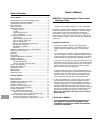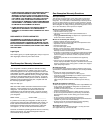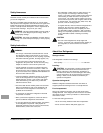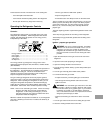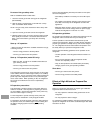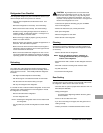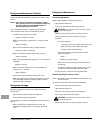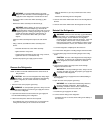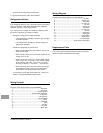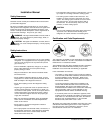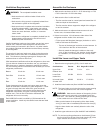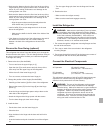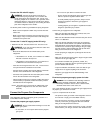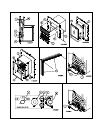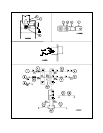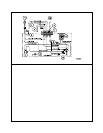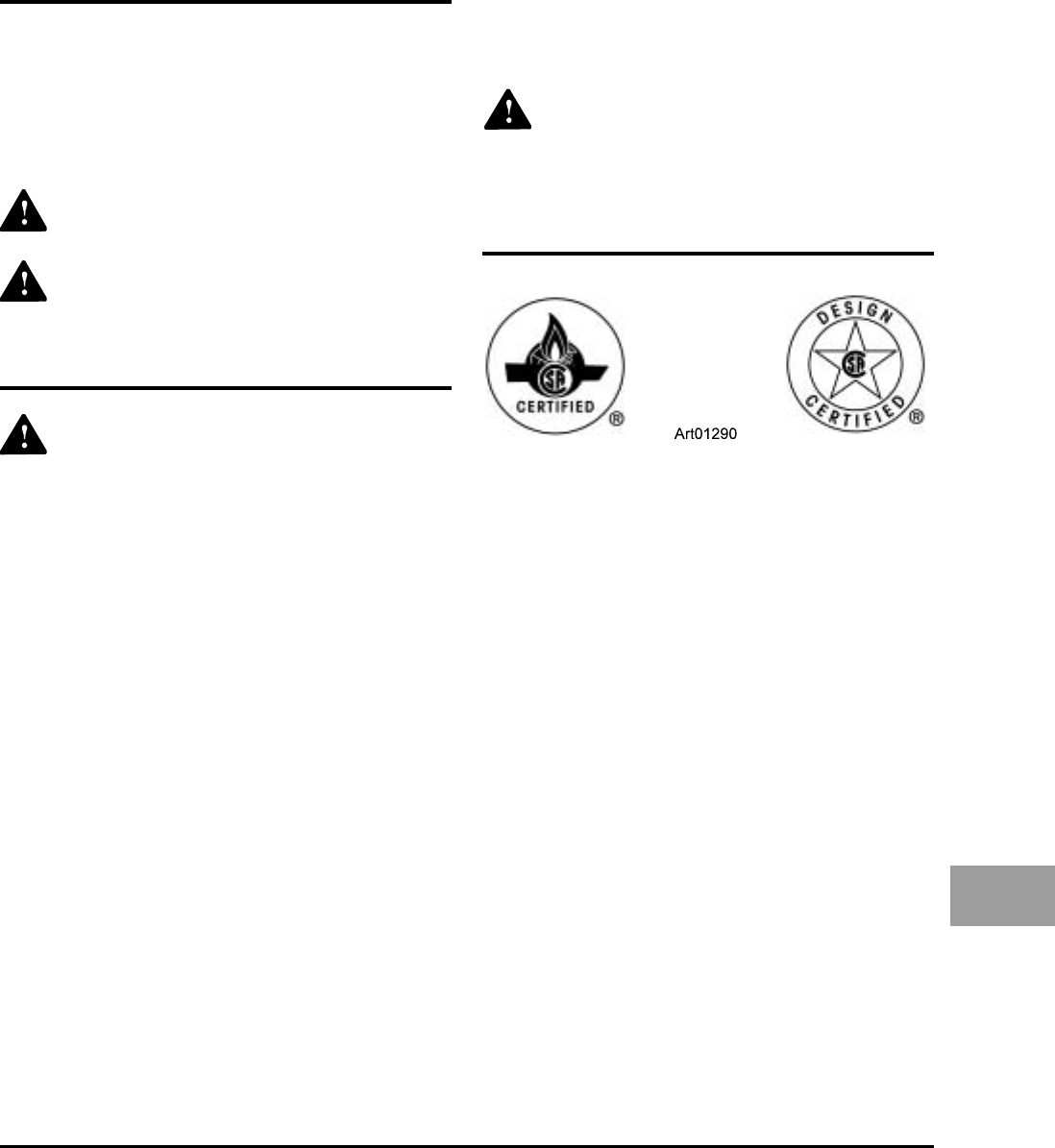
Installation and Owner’s Guide 11
Certification and Code Requirements
Safety Awareness
Safety Instructions
Read this manual carefully and understand the contents before
you install the refrigerator.
Be aware of possible safety hazards when you see the safety
alert symbol on the refrigerator and in this manual. A signal word
follows the safety alert symbol and identifies the danger of the
hazard. Carefully read the descriptions of these signal words to
fully know their meanings. They are for your safety.
WARNING: This signal word identifies a hazard, which if
ignored, can cause dangerous personal injury, death, or
much property damage.
CAUTION: This signal word identifies a hazard, which if
ignored, can cause small personal injury or much property
damage.
WARNING:
- This refrigerator is not approved for use as a free standing
refrigerator. It is equipped for the use of propane gas only
and can not be changed to use any other fuels (natural
gas, butane, etc.).
- Incorrect installation, adjustment, changes to, or mainte-
nance of this refrigerator can cause personal injury,
property damage, or both.
- Obey the instructions in this manual to install the intake
and exhaust vents.
- Do not install the refrigerator directly on carpet. Put the
refrigerator on a metal or wood panel that extends the full
width and depth of the refrigerator enclosure.
- Do not allow anything to touch the refrigerator cooling
system.
- Propane gas can ignite and cause an explosion that can
result in property damage, personal injury, or death. Do
not smoke or create sparks. Do not use an open flame to
examine the propane gas supply line for leaks. Always
use two wrenches to tighten or loosen the propane gas
supply line connections.
- Make sure the electrical installation obeys all applicable
codes. See the “Certification and Code Requirements”
section of this manual.
- Do not bypass or change the refrigerator’s electrical
components or features.
- Do not spray liquids near electrical outlets, connections, or
the refrigerator components. Many liquids are electrically
conductive and can cause a shock hazard, electrical
shorts and in some cases, fire.
Installation Manual
- The refrigerator cooling system is under pressure. Do not
try to repair or to recharge a defective cooling system.
- The cooling system contains sodium chromate. The
breathing of certain chromium compounds can cause
cancer. The cooling system contents can cause severe
skin and eye burns, and can ignite and burn with an
intense flame. Do not bend, drop, weld, move, drill,
puncture, or hit the cooling system.
CAUTION:
- The rear of the refrigerator has sharp edges and corners.
To prevent cuts or abrasions when working on the
refrigerator, be careful and wear cut resistant gloves.
This refrigerator is certified by CSA International as meeting the
latest edition of ANSI Z21.19 / CAN 1.4 standards for installation in
mobile homes or recreational vehicles.
The installation must obey these standards and this “Installation
Manual” for the NORCOLD limited warranty to be in effect.
Installation must conform with the following as applicable:
In the United States and Canada:
- Local codes, or in the absence of local codes, the National
Fuel Gas Code, ANSI Z223.1/NFPA 54, the Natural Gas and
Propane installation Code, CSA B149.1, ANSI A119.2
Recreational Vehicles Code, and CSA Z240 RV Series,
Recreational Vehicles.
- A manufactured home (mobile home) installation must
conform with the Manufactured Home Construction and
Safety Standard, Title 24 CFR, Part 3280 [formerly the
Federal Standard for Mobile Home Construction and Safety,
Title 24 (part 280), and the current CSA Z240.4, Gas-
equipped Recreational Vehicles and Mobile Housing.
- If an external power source is utilized, the appliance, when
installed, must be electrically grounded in accordance with
local codes or, in the absence of local codes, the National
Electrical code, and ANSI/NFPA 70, or the Canadian
Electrical Code, CSA C22.2. Parts 1 and 2.
All propane gas supply piping and fittings must obey local, state,
and national codes about type and size. These components
must also obey the current NFPA 501C section 2-4, and in
Canada with the current CAN 1-6.10 Standard.



